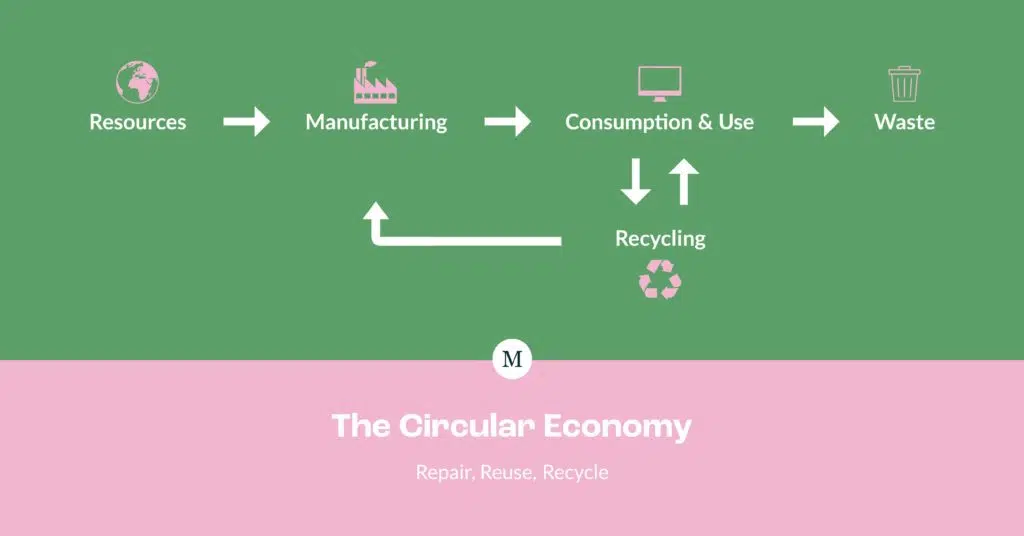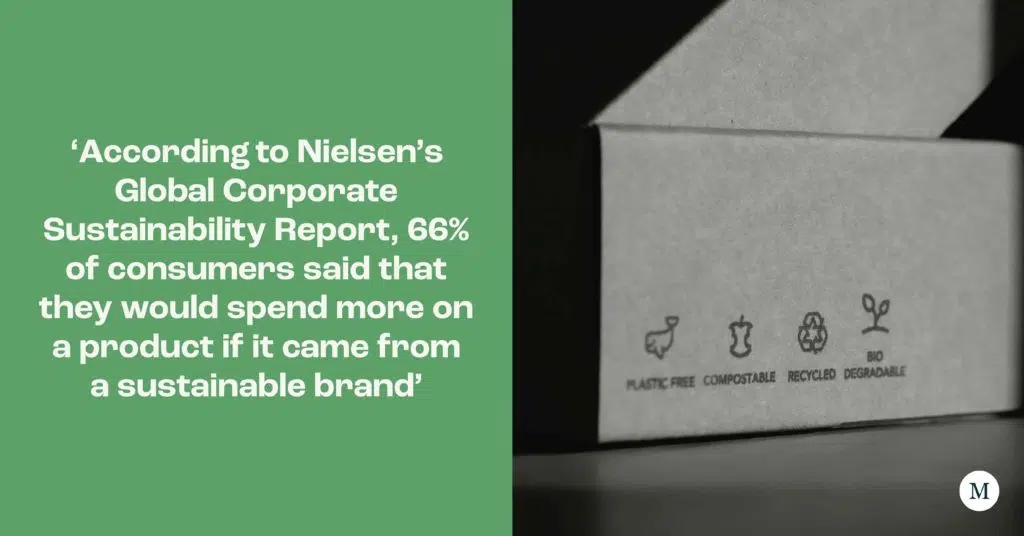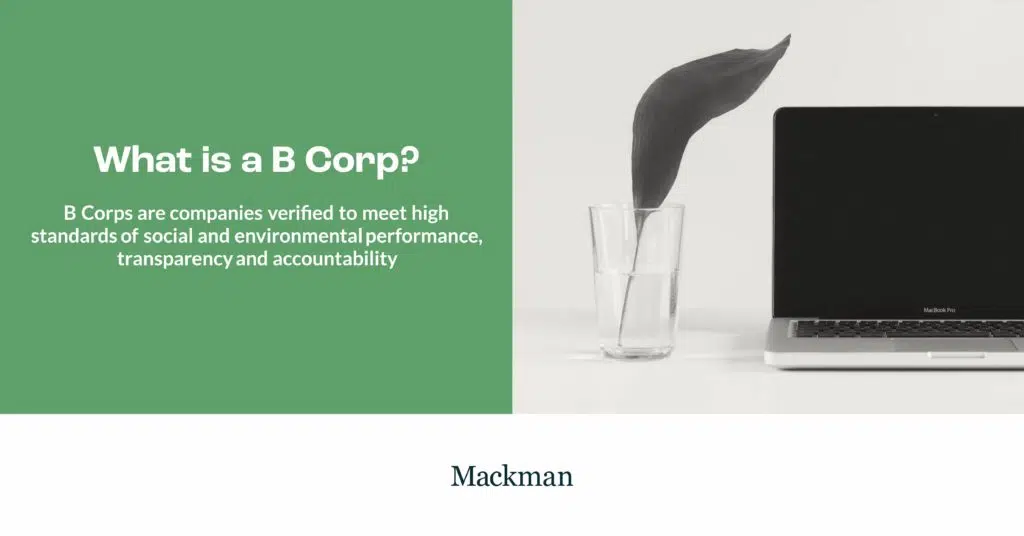The sustainable marketing movement is increasingly gaining traction around the world. Sustainable marketing is the philosophy that marketing must drive environmentally conscious behaviour rather than consumerism, and encourage an approach that accommodates the needs of the current generation and generations to come. Find out more about sustainable marketing here, and the implications of the new Green Claims Code that came into force in January 2022.
Marketing is often viewed as a discipline that puts convenience and profit first, and encourages a throw-away culture. As Michelle Carvill and Gemma Butler raised in their latest CIM webinar, there’s nobody better placed than educated, responsible marketers to effect change in the way that their businesses view and communicate sustainability. More must be done to promote sustainability within marketing if we are to make lasting changes to the way that businesses operate.
Sustainable marketing is, in essence, built on three factors. These are:
- Shaping new behaviours and ways of thinking
- Education and inspiration about sustainability
- Delivering on customer, employee and societal needs
Traditionally, marketing is made up of four Ps – product, price, place, and promotion. This is increased to seven Ps when considering physical evidence, people, and process. The promotional element is often the area that is most associated with marketing. Although communication is a valuable interface between a business and the ‘outside world’, marketers can effect positive change in all other areas of a business.
What is the circular economy?
A key element of sustainable marketing is the circular economy, part of the European Green Deal introduced in March 2020 to start a transition towards a climate-neutral, resource-efficient and competitive business environment. The EU’s move towards a circular economy aims to reduce pressure on natural resources and create sustainable growth and jobs by viewing the entire product life cycle. This targets how products are designed, through to their consumption, and then to disposal.

What is Greenwashing?
With increased scrutiny on the environmental impact of businesses, particularly large brands, there has been a rise in ‘greenwashing’. Greenwashing is the term for sustainable claims that turn out, in practice, to be untrue. This often entails spending more time promoting that they are eco friendly as opposed to backing up those claims. According to Nielsen’s Global Corporate Sustainability Report, 66% of consumers said that they would spend more on a product if it came from a sustainable brand. This is even more of an influencing factor among millennials, where the figure increases to 73%.
Greenwashing can come in a multitude of forms. It could entail the use of jargon or confusing language to hide unsustainable practices from consumers, or woolly language that does not have a clear message.
Several high profile cases of greenwashing were reported in 2021, such as Tide’s purclean ‘plant-based’ laundry detergent not being 100 percent plant-based, and containing ingredients that were derived from petroleum. However, consumers were led to believe in their advertising that a higher price point was justified by these claims, along with the use of a green leaf motif to promote natural connotations.

Can businesses get sustainability accreditations?
Accreditation in sustainable marketing practices is possible in order to promote your business’s green credentials to consumers. However, many of these badges are paid for, and do not require a firm commitment to sustainability in practice. The B Corp accreditation is the most well-known scheme that promotes the concept that businesses do not exist solely for profit – instead, they occupy a place where they can meet consumer needs without detriment to the environment.
There are currently over 4000 B Corp certified companies that demonstrate high social and environmental performance and have made a legal commitment by changing their corporate governance structure to be accountable to all stakeholders. In addition, they are transparent in sharing information about their performance.
One high profile B Corp is Innocent, the juice and smoothie manufacturer. In 2018 they became a certified B Corp on their first attempt, writing a detailed B Corp page about their involvement in the movement and the benefits for both customers and the business. The B Corp logo is proudly displayed on their bottles. This transparency is demonstrated in their publicised progress towards a higher B Corp score, their financial growth, and their carbon emissions.

What is the Green Claims Code?
The Competition and Markets Authority (CMA) introduced the Green Claims Code in January to curb the rise in false or misleading claims using six measuring principles following an investigation found that 40% of online claims to sustainability could be misrepresenting the truth, and therefore are simply designed to sell more. Therefore, the Green Claims Code will have a positive impact on stopping unfair competition, and level the playing field for businesses whose products genuinely represent a better choice for the environment.
Although penalties for flouting the rules have not been outlined beyond the potential for court cases, the GDPR rollout in 2018 indicates that the consequences could be severe. The EU’s data protection authorities can impose fines of up to up to €20 million, or 4% percent of worldwide turnover for the preceding financial year. The CMA has made it clear that it expects businesses to comply with the new guidance by January 2022.
The impact of the Green Claims Code will not be seen in the immediate term, but there are concerns that it may discourage businesses from making a green claim at all due to the risk of reprisals if these turn out to be misleading, even if they do carry out sustainable practices. This concept of ‘secret sustainability’ is not new – businesses may also be averse to promoting sustainable messaging due to the impression that customers associate the eco movement with higher costs.
What are UK bodies doing to make marketing more sustainable?
The Chartered Institute of Marketing offer a sustainable marketer course based around an idea of sustainable practice, bridging sustainability with customer experience and gaining an understanding of how to manage eco friendly practices within your supply chain. A CIM webinar titled ‘Inwards, Upwards, Outwards’ also addressed the cycle of pushing for sustainability that returns greater value.
So, what can your business do to be more sustainable? Measure your current marketing messages against the following principles.
- Is it truthful and accurate?
- Is it clear and unambiguous?
- Is it omitting or hiding important information?
- Is it drawing fair and meaningful comparisons?
- Is it making substantiated claims?
- Does it consider the full life cycle of a product?
By adhering to the criteria set out in the Green Claims Code, not only will your business comply with the latest regulations, but you will also reassure your customers that you are operating ethically and transparently to benefit current and future generations.
For more information about how you can incorporate sustainable messaging into your marketing in compliance with the Green Claims Code, speak to our team today. Contact 01787 388038, or email customerservice@mackmangroup.co.uk for more information.
